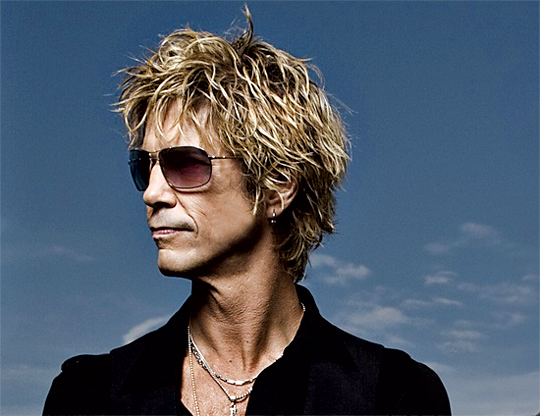Duff McKagan, at 15, performing with the Fastbacks. McKagan’s column runs every Thursday on Reverb.Last Christmas I wrote of a family who was barely making ends meet as they fought alongside their daughter with leukemia. I spoke of the importance of the Ronald McDonald House, which provides a roof for these families who have otherwise tapped out their savings in their plight. Other than that single column, I have stayed away from trying to steer a reader someplace or to some cause I think they should know about. Some of you know that while I may be full of myself at times, it is my hope that you know I am not full of shit. I don’t ever want to come off as preachy, but only to share things of substance from my personal experiences-good OR bad. Take what you will from them.Growing up in this town during the early punk-rock movement was nothing short of fantastically inspiring. Our scene was pretty minuscule, so we all knew each other and probably played in one another’s bands sometime between 1979 and early ’82. Sure, we drank a ton of beer and maybe experimented with LSD, mushrooms, and coke, but beyond that it was pretty innocent.Sometime in 1982, as the scene became bigger and a recession hit Seattle, we all noticed a huge influx of heroin and pills. I witnessed my first overdose when I was 18. Addiction suddenly skyrocketed within my circle of friends, and death by overdose became almost commonplace. By the time I was 22, two of my best friends had passed from ODs. Many of these early addicts have either died or live a pitiful existence to this day. These are the same people in whom I personally witnessed a wonderful lust for life and a whimsical glint in the eye, looking forward to the future. No one sets out to be a junkie or alcoholic. Some people can just experiment in their youth and move on. Others cannot. Science has admitted that there is an actual difference in neurotransmitters, serotonin levels, and other inputs that separate a person who will become addicted from one who will not.I was recently introduced to Susan Peck, a woman who has the heartbreaking cross to bear of losing her 19-year-old son Jonathon to suicide brought on by a youth-long (short?) history of drug addiction. The Peck family has a history of alcoholism, and therefore had family talks with their kids about things to watch out for. “It wasn’t a chat of ‘Don’t do it,’ but more a matter of ‘You will.’ It became more of a talk of ‘These are the symptoms you need to be aware of . . . you have a loaded gun to your head.'” As it turned out, their son “pulled the trigger,” Susan explained to me of early Peck family conversations.Susan’s life has been changed forever. That is for sure. But her call to service has been energized, to say the least. She is a key member of family-support services that educate like-afflicted parents and children. And she has become a vocal advocate of 3-year-old SAMA.The Science and Management of Addictions (SAMA) was formed three years ago by two medically savvy individuals, Dr. Robert Day and and CJ Taylor Day, who at any turn could call upon the doctors of Fred Hutch, Swedish, and the University of Washington Hospital to cull answers from the fertile medical establishments surrounding them in the Pacific Northwest. So when their own daughter was diagnosed with the disease of substance addiction, they were appalled at the lack of research, advocacy, and education concerning this disease. As parents, they, along with their ailing daughter, became helpless victims of a broader community still mired in old stigmas and discriminations of character about addiction, as opposed to regarding it as a brain disease.
SAMA wants to do active research to scientifically explore and unlock the reasons why one child’s brain wants/needs an addictive substance over another who abuses recreationally. They hope to one day FIND A SCIENTIFIC CURE!!Right now, I am reading “Beautiful Boy” by David Sheff, which depicts his family’s struggles with their son’s meth addiction. On a personal level, I have suffered and struggled with addiction, and must be daily vigilant against this monster in waiting. Addiction is not romantic, artsy, or cool. It is nothing short of sheer terror and hopelessness. I am behind any scientific advancement for others, and myself, who have suffered. Would we leave cancer untreated? Diabetes? No, we wouldn’t.
Go to www.samafoundation.org if you or someone you know are interested in support for a loved one–or, just want to help.






